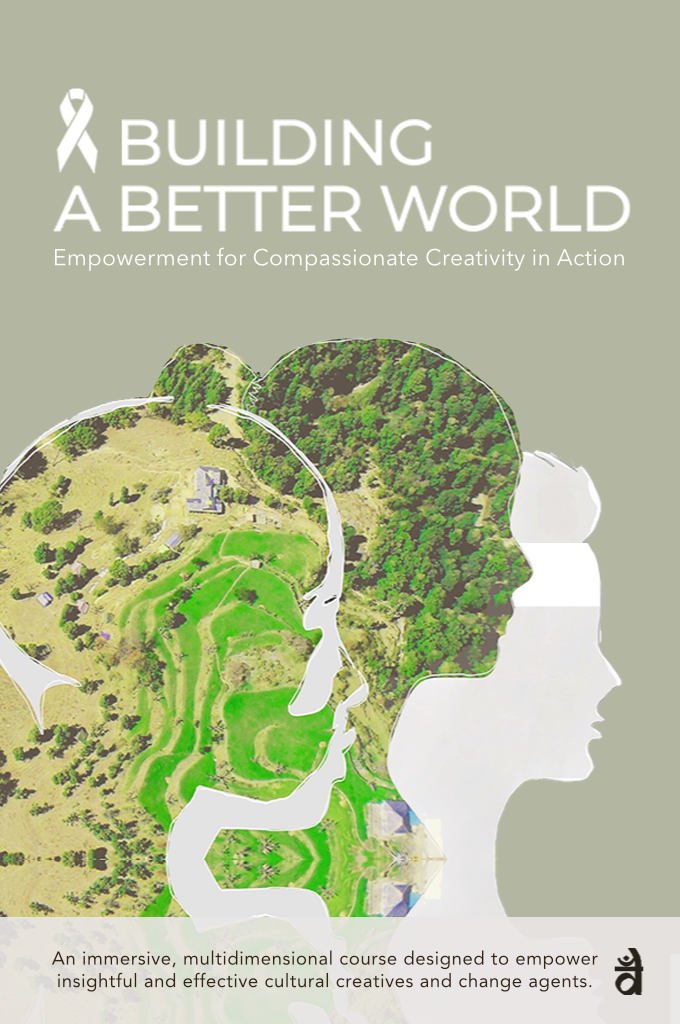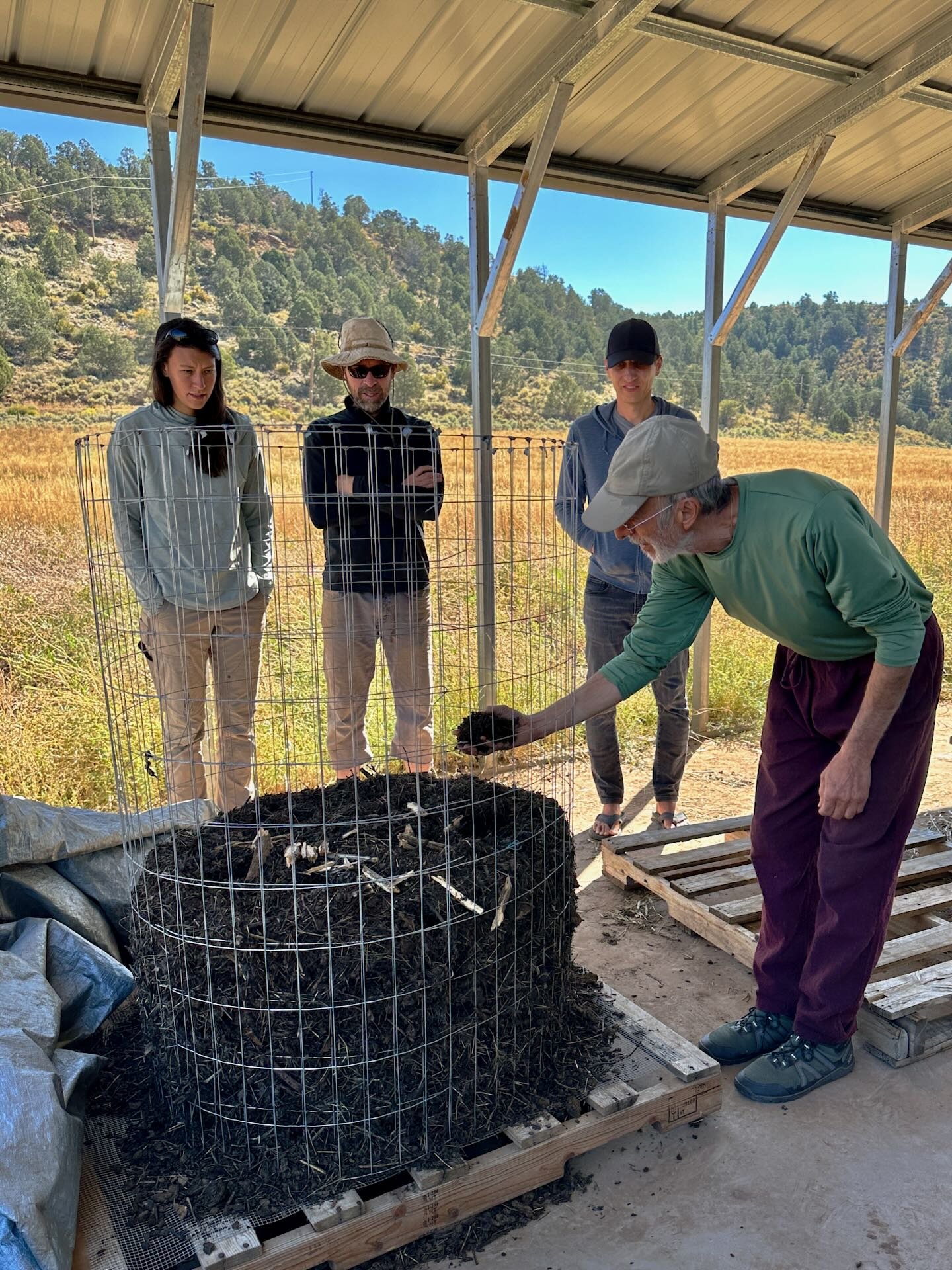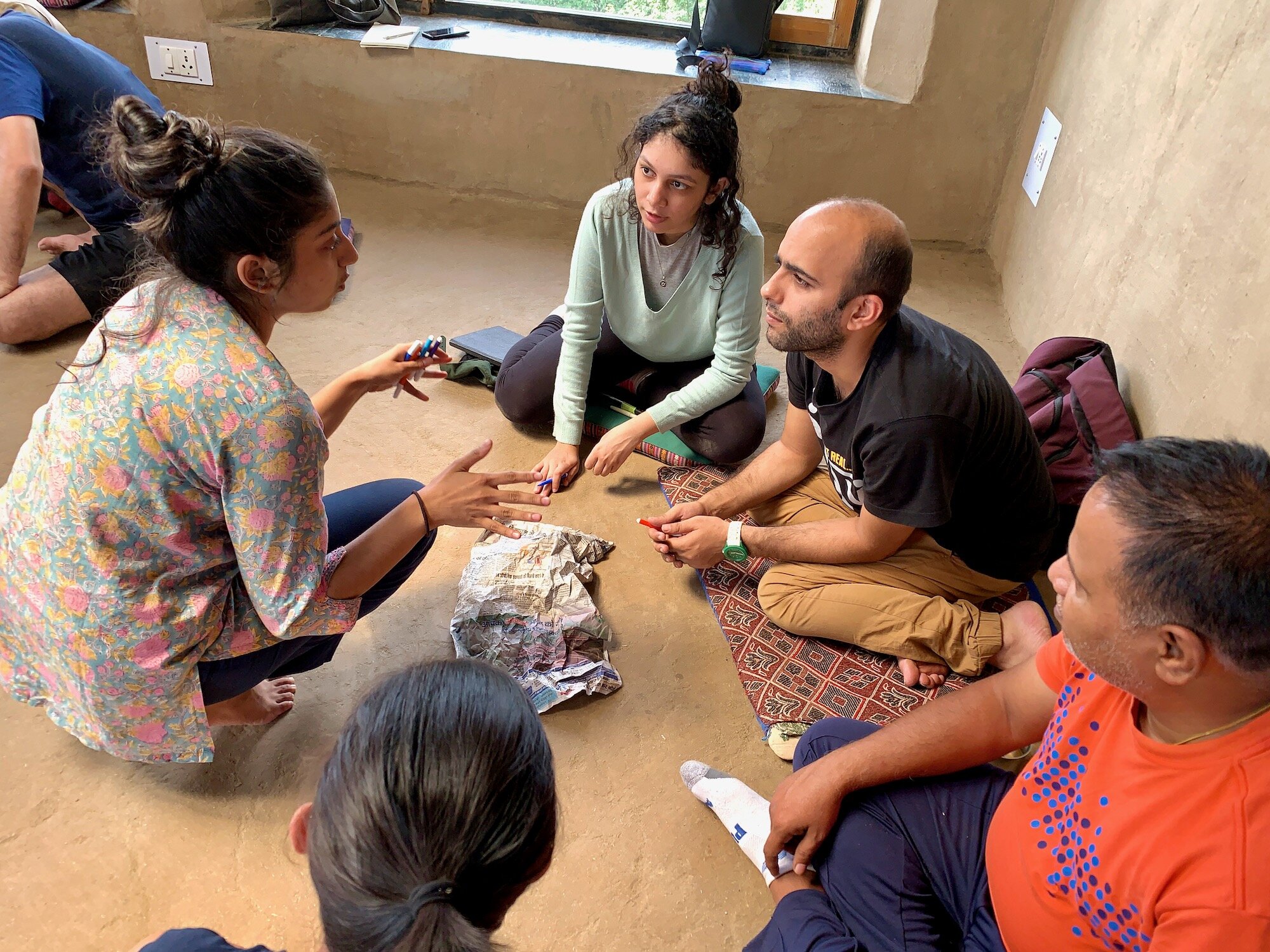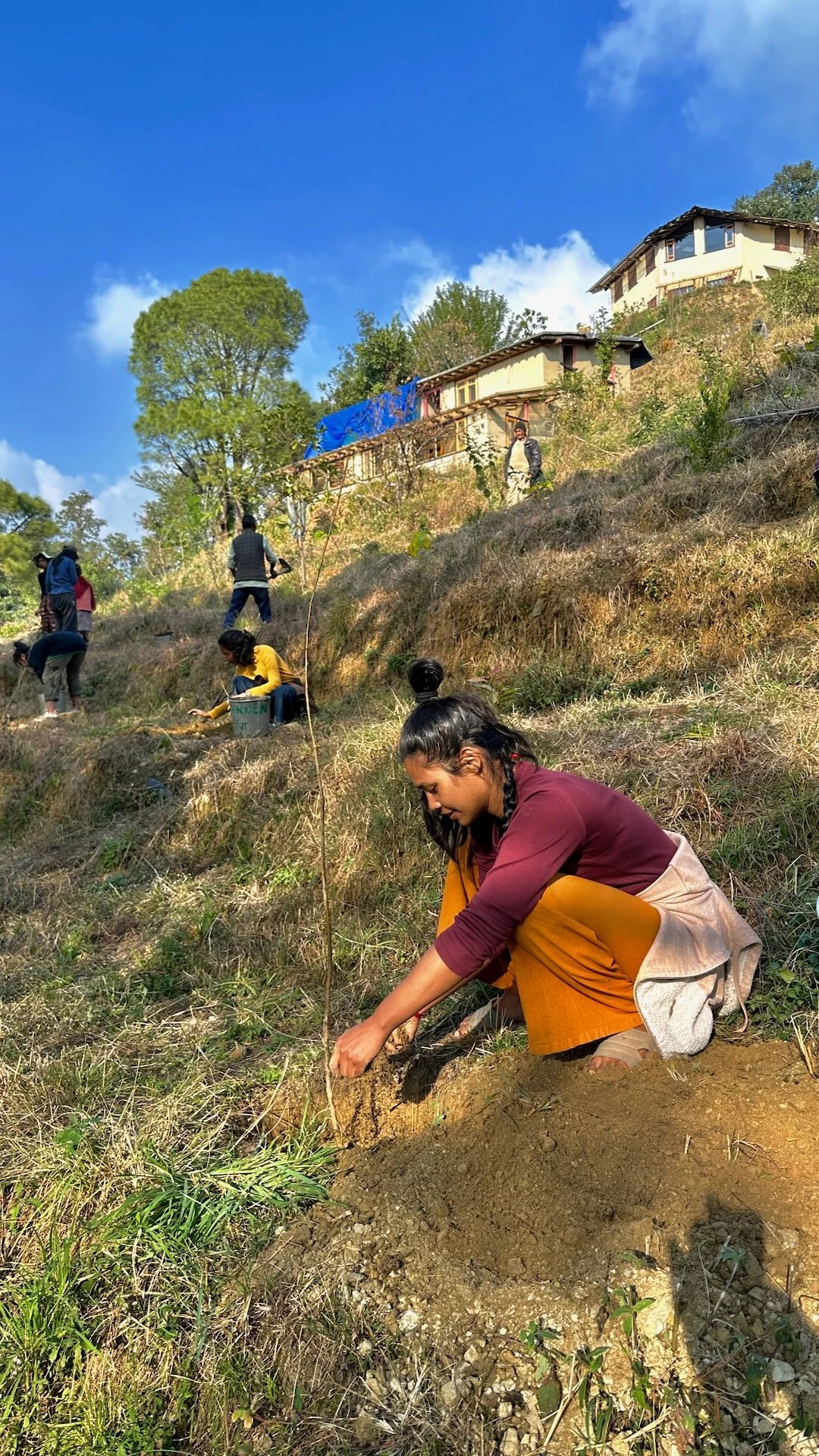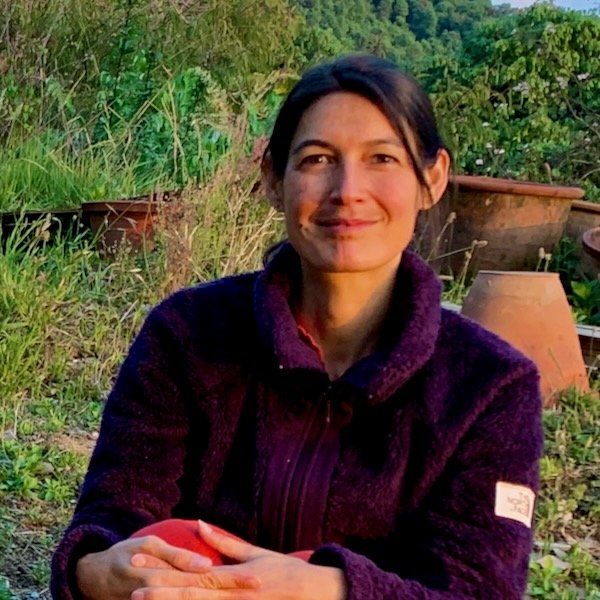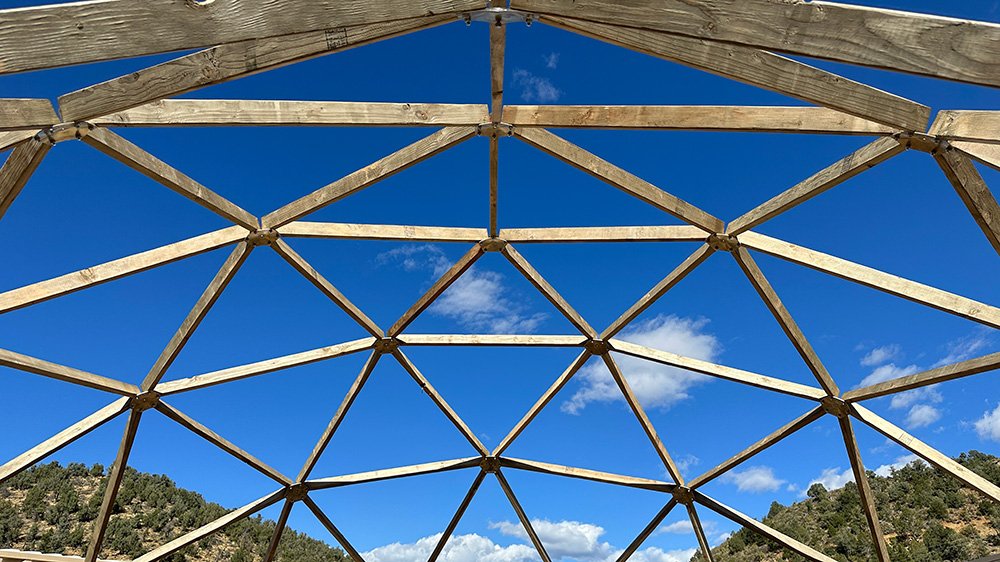
Building a Better World
A collaboration between Earthville Institute (USA) & Dharmalaya Institute (India)
structured as an ongoing series of workshops, courses & retreats
for compassionate changemaking
Building a Better World is a long-term service-learning program designed to empower the creators of a more sustainable and harmonious world. This contemplative and embodied program seeks to engage the whole of us in the exploration of the most vital topics of our times:
Insightful and effective changemaking
Responsible local and global citizenship
Cultivating holistic well-being for self and others
Integrated personal and vocational development
Wise and compassionate leadership
The power of creativity to transform people and the world
AT A GLANCE
Dates: Ongoing, with rolling applications and multiple intake dates throughout the year (see events schedule for specifics)
Duration: Ongoing series of modular programs, each of which has a different duration, with long-term participation (15 months or longer) highly recommended
Program type: Immersive residential with hybrid options for partial remote participation
Modular structure: A stream of workshops, courses, practicums, and retreats, with mix-and-match in-person and remote participation options, allowing participants to join one or several or all of the program modules, or to come and go, according to interest and availability.
Locations: There are three venues for participation:
In-person at Dharmalaya Institute (Himachal Pradesh, India)
In-person at Earthville Institute (Colorado, USA)
Remotely (online) for specific sessions
Cost: Varies depending on module and venue (see below for details)
INTRODUCTION TO BUILDING A BETTER WORLD
Earthville Institute is partnering with Dharmalaya Institute (our sister school in the Himalayas) to bring you “Building a Better World,” a unique long-term service-learning program designed for caring people like you who want to be the co-creators of a more compassionate and sustainable world. This precious opportunity is designed to empower participants as insightful, sensitive, and effective agents of change, and to foster the development of skills for making your creative inspirations into realities.
Each of us has our own unique contributions to make to this world, but how can we make the best contributions we can make? Where do we focus, and how do we improve? How do we meet the human challenges of working with others effectively? How do we communicate successfully? How do we reach people? How do we inspire others to action? How do we make it work financially? How do we take care of ourselves along the way? And how do we do our work as sustainably as possible?
This program will address all of these essential questions and more, supporting you to make greater beneficial impacts while also evolving as a caring human and a compassionate local and global citizen.
You’ll have opportunities to apply the skills and sensitivities you’ll be developing in the course in the real-world context of the work of Earthville Institute itself (with the option of gaining experience at our Himalayan campus as well). And, in that process, you will have the opportunity to be a part of the team that will shape the future of our work — a rare and precious opportunity to make a major impact.
“Though the problems of the world are increasingly complex, the solutions remain embarrassingly simple.”
EMPOWER YOURSELF TO TRANSFORM YOUR WORLD
Our world is changing quickly, in ways both helpful and harmful. We can’t fix everything, but we can’t keep breaking it either. Each of us can make a difference with informed compassion, reducing our harm footprint and optimizing our help footprint, and cultivating nurturing relationships in our communities.
How can we make the best possible impact with our lives? Whatever that may be for each of us, it starts by developing ourselves as sensitive humans, educating ourselves as responsible global citizens, empowering ourselves as effective change agents, and connecting with one another in creative collaborations for the greater good. And with that foundation, it continues with developing more of our natural capacities for sensitivity and creativity, and cultivating the skillful means to put compassion into action with greater effectiveness.
This course is designed to support you to gain insight and experience that will empower you to make your most helpful contributions to the world while also enhancing your own well-being.
Who is this program for?
Anyone with a caring heart and a passion to do some good in the world, who aspires to empower yourself to make the best possible impacts in the best possible ways. Whether your passion is expressed in the fields of education, sustainability, the arts and creativity, nonprofit work, social activism or social/ecological entrepreneurship, this course is designed for you. For those who already have significant experience, this course will serve as an integrated personal and professional development program to refine your skills and sensitivities and enhance your effectiveness. And for those who are either looking for a career change or just beginning to find your paths in this world, this course will meet you where you are and help you find fruitful and satisfying ways to focus your energy and gifts.
“When making an aspiration, ask yourself: What does it mean to evolve? How would you like things to be? Then look at the nature of life realistically and identify where you actually have a choice. Then become an agent for change.”
THE SYLLABUS
Building a Better World integrates theory and practice, and supports participants to do the same through a diverse array of training exercises and real-world projects supported by a multidisciplinary syllabus of complementary studies to add depth, detail, dimension to the ideas and practices we’ll be exploring.
Five elements of effective compassionate changemaking
Building a Better World explores five essential elements that support us to make our best impacts:
Balanced sensitivity: Opening the heart and mind with understanding and empathy for the experience of all beings (including oneself)
Informed compassion: Discerning awareness of individual, local, regional, and global issues and their impacts — including the increasingly important skill of how to discern what’s really going on in a time when there’s so much misinformation
Skillful means: The practical wisdom of engaging effectively, the capacity to get results efficiently and elegantly — including communication skills, negotiation and conflict resolution, and moving from vision to reality
Sustainable thriving: Cultivating shared prosperity while preserving ecological balance, nurturing human flourishing in ways that support all other life on earth to flourish, too
Responsible global citizenship: All of the above elements come together to empower us to do our part, to heed the call of our times and circumstances and respond with insightfully conceived and effectively executed action to relieve suffering, bring meaningful change, and inspire others to do the same. In other words, putting informed compassion into action: making our best efforts to understand local and global issues, to act with sensitivity about them, and to change ourselves and our world for the better.
A key concept: Responsible Global Citizenship
“Today, more than ever before, life must be characterized by a sense of universal responsibility, not only nation to nation and human to human, but also human to other forms of life.”
— The 14th Dalai Lama
In this age of globalization and increasing interconnectedness, our lives impact one another’s — for better or for worse. Through learning, connection, and service, we can make the best possible impact on our world. Through informed, compassionate choices and actions, we can minimize our harm footprint and maximize the benefit we create for ourselves, for others, and for the planet.
To live without a sense of global responsibility is to turn away from the suffering of others and to waste many precious gifts we could give to the world and receive from it.
To live with a sense of global responsibility is to seek to understand and embrace the world as it is while working diligently and joyfully to make it better.
For a deeper look at Responsible Global Citizenship, see this article from the Earthville Network.
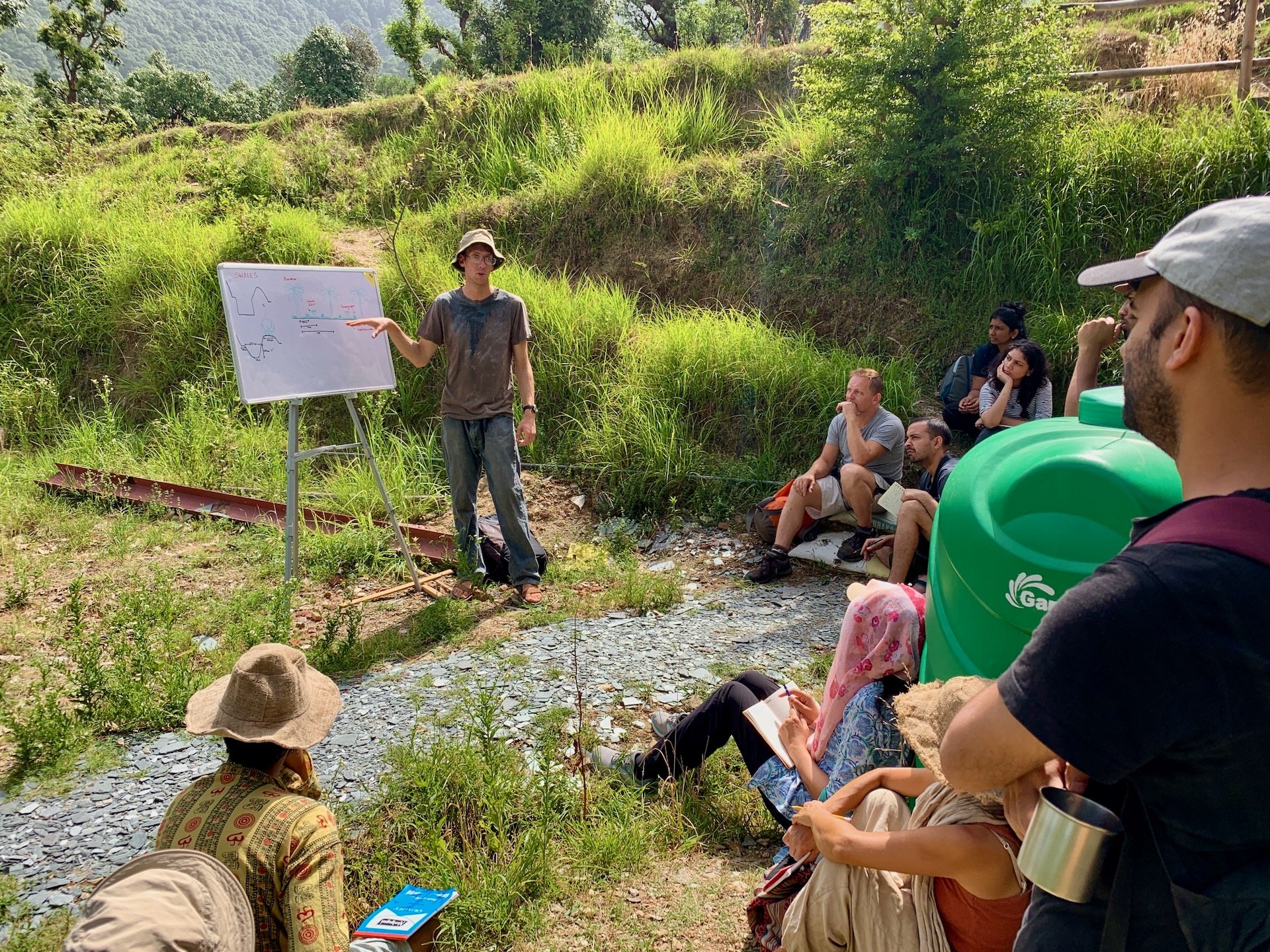
CORE CURRICULUM: WHAT WE’LL BE EXPLORING
Building a Better World provides an integrated, multidisciplinary approach to personal and professional development combining theory and practice, soft skills and hands-on work, for both inner and outer evolution.
AREAS OF LEARNING & PRACTICE
Sustainability solutions: Explore the vast and deep concepts of permaculture, organics, voluntary simplicity, and more.
Contemplative approaches to the creative process: We will explore the creative process from a contemplative perspective — meaning how do we tune into the most sensitive, receptive, and creative parts of ourselves and use the creative process to deepen our intimate relationship with nature, with ourselves, and with one another.
Community, communication and collaboration: Living in community is a great opportunity to learn about ourselves and others, and to refine our skills for living, learning, and working together in harmony. (These skills bring benefit for a lifetime!) Practice deep listening, and other aspects of healthy, clear, respectful and productive communication. Be a harmonizing force, helping others interact smoothly and fruitfully. Explore possibilities for better teamwork.
Presentation: Gain experience and skill with public speaking and presenting information in ways that are clear, engaging and impactful.
Facilitation: Gain experience and skill with facilitating group processes such as discussions, sharing circles, learning exercises, and more, including the art of keeping participants engaged and supporting them to make discoveries.
Experiential education: Gain experience and skill with supporting others to learn by doing and reflecting. A good experiential educator doesn’t “teach” as much as set the stage and provide skillful cues and nudges when needed to keep the learners engaged in their learning. Earthville is a great place to learn and practice this approach and gain helpful feedback.
Social issues and ways to work with them: The BBW program is a fertile setting for intersectional exploration of social issues including gender, socioeconomic factors, and more. In the process, you'll gain insight into the lives of people of diverse backgrounds, including both their wisdom and their struggles, and insight into yourself as well.
Project management: Each participant will have opportunities to manage real-world projects on Earthville Institute’s (and/or Dharmalaya Institute’s) campus, and to receive support, guidance, and feedback to foster the development of greater skill, sensitivity, and effectiveness in this role. Likely possibilities for project-management opportunities include:
Administration: Co-managing various processes to keep the Institute running smoothly
Responsible consumption and waste management: Co-managing the design and implementation of solutions to help the Institute move ever closer to its zero-waste goal, which might include composting solutions, upcycling of waste, better sourcing to reduce waste, creative DIY solutions, etc.
Organic gardening: Co-managing the design and implementation processes for beautiful and thriving gardens utilizing various traditional and innovative techniques to create healthy soils for high-yield food-growing.
Permaculture landscaping: Co-managing the design and implementation of campus developments integrating the built environment, the cultivated environment, and the natural environment.
Natural building: Co-managing non-technical aspects of eco-friendly construction and interior design projects, including reviewing plans for efficiency, finding the best sources for materials, etc.
Maintenance and repairs: Co-managing various processes to keep the Institute’s facilities and infrastructure in good condition.
Other projects that may arise as real-world needs to be addressed.
Workshop facilitation: All of the above will come together in at least one opportunity to co-design and co-lead a workshop at Earthville Institute (or Dharmalaya Institute) with the support the Institute’s faculty and staff at every stage. A precious opportunity!
SKILLS & CAPACITIES TO BE DEVELOPED
Collaboration skills: Be a better team player, engaging with others more effectively in harmonious cooperation toward common goals; facilitating smooth and productive collaborations, cultivating positive team spirit, etc.
Management and leadership skills: Practicing a human approach to working in concert with other humans, leading by example and inspiring others to bring their best selves to do their best work.
Systems thinking: Seeing everything (including a project, an object, and ourselves and others) not as isolated “things” but rather as systems within larger systems, all inextricably interdependent, and learning to approach design and problem-solving with that systems view.
Design thinking: A holistic way of seeing, understanding, contemplating, problem-solving, and creating, which considers design challenges from many angles and seeks solutions that work well in all respects.
Attention to detail: Focusing on quality of work with mindful presence, noticing the small things, and working joyfully to do work with a level of quality that pleases both oneself and those who will have the opportunity to enjoy the final product.
“Nature is trying very hard to make us succeed, but nature does not depend on us. We are not the only experiment.”
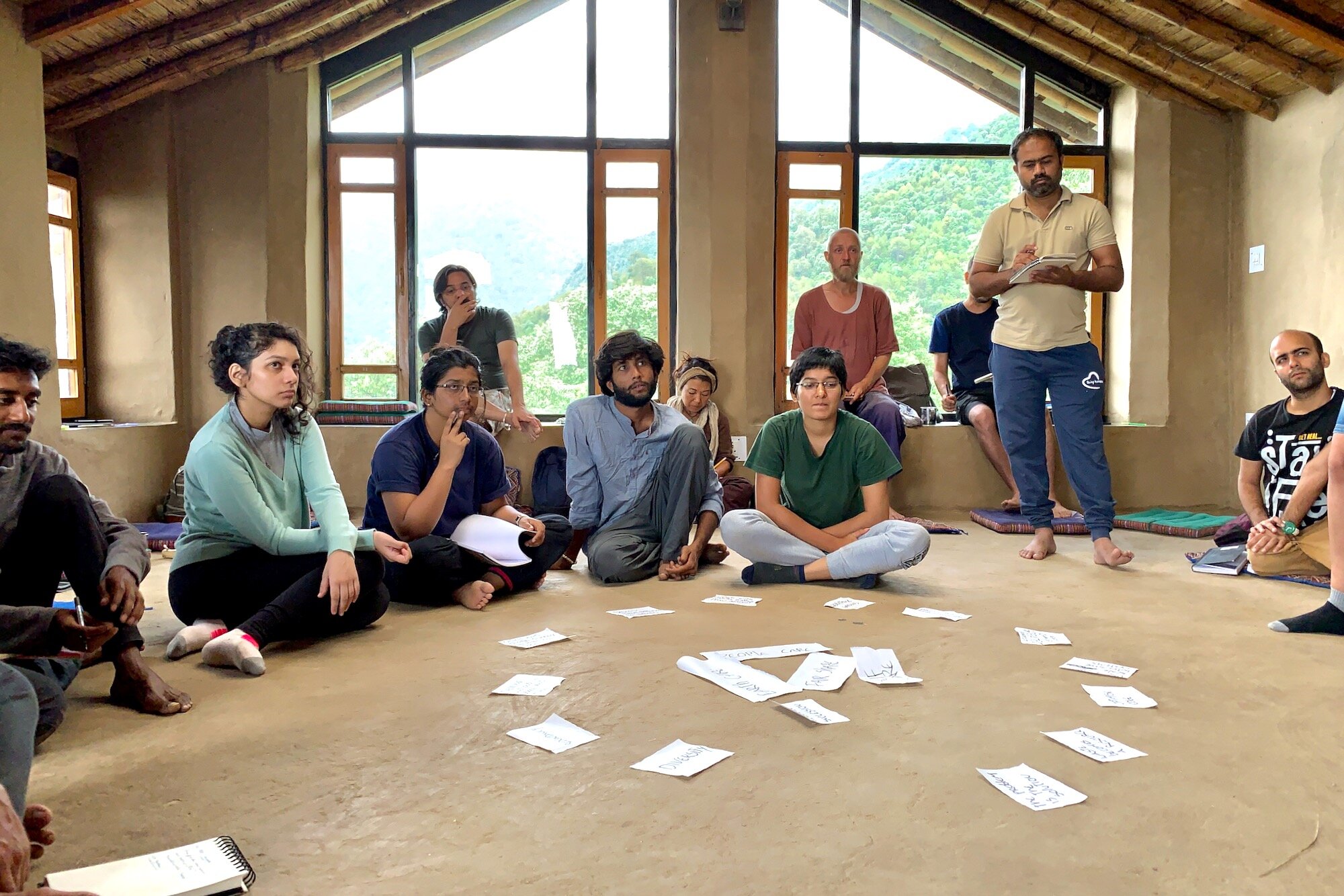
EMBODIMENT: THE SOFT SKILLS OF CHANGEMAKING
As many wise people have observed, to be effective and authentic as changemakers, educators, or leaders with values and ethics, we must “be the change” and “walk the talk.” The evolution of the world toward the compassionate values and virtues we cherish begins with the embodiment of those values and virtues within ourselves.
AREAS OF LEARNING & PRACTICE
Compassionate living: The practice of compassionate living touches all aspects of life: food, shelter, health, work, relationships, and more. We’ll make a holistic study of all of these areas and explore ways we can empower ourselves to minimize our harm footprints and optimize our help footprints.
Sustainable thriving: Growing and evolving as a compassionate and responsible local and global citizen; decreasing our harm footprint while optimizing our help footprint; living a deeply satisfying life while supporting others do the same.
Holistic health and well-being: Enjoy the benefits of a healthy and balanced lifestyle with daily yoga and meditation, wholesome plant-based meals (including learning to cook them!), and a nourishing rhythm of work, reflection, and rest.
Journaling: Maintaining a practice of regular reflection, and capturing our significant experiences and insights in writing, which is a major aid to learning and growth.
Group sharing: Practicing sharing our personal experiences with a group of trusted kindred spirits in a safe and mutually respectful environment. We share authentically and hold space for others to feel safe to do the same.
Movement practice: Exploring the wisdom of the body through yoga asana practice, walking meditation, and other conscious movement practices (e.g. instruction in the Taoist practices of chi kung may also be available for those with interest).
Stillness practice: Discovering our natural capacities for well-being and nuanced sensitivity through meditation and mindfulness practices, gaining direct experience of the positive impacts of meditation on both mind and body.
Finding balance: Cultivating a deeper, more personal, and more authentic experience of harmony and balance in our life and work through embracing a healthy and balanced lifestyle (including physical activity and proper rest, as well as healthy food).
Connection: Enhancing our innate awareness of the connectedness of all living things and applying it in our harmonious collaboration with our fellow participants and the Earthville community, and thereby deepening our embodied understanding of the connectedness of all the elements of our programs and facilities.
Insight: Contemplating the whys — the Big Questions of being human and finding purpose in life. These philosophical and meditative explorations will draw on traditional wisdom, including time-honored texts and practices.
SKILLS & CAPACITIES TO BE DEVELOPED
Conscious communication skills: Learning to communicate with greater sensitivity and effectiveness — understanding others better and learning to make ourselves better understood through mindful, clear, caring communication.
Keen observation: Cultivating an attentive presence that notices more than we ever have before, with greater openness, sensitivity and empathy. We develop our capacities for seeing, deep listening, and reflection.
Contemplative practice: Cultivating a daily meditation and movement practice, which helps to reduce stress, enhance functioning, inspire creativity, and improve the quality of our work and our connections with others.
Self-awareness: Seeing ourselves clearly, consciously acknowledging our gifts and our challenges, our strengths and weaknesses.
Authenticity and integrity: Being real, honest, transparent, and true to our values and aspirations.
Responsibility: Being ever more conscientious about doing our part (and a little more) with joyful diligence, and becoming ever more reliable, accountable, and dependably mature.
Humble confidence: Practicing courageous honesty about our own limitations and vigilance to guard against our own potential for arrogance or narcissism, while working to heal the wounds within us that give rise to false pride so that the virtue of humble confidence can shine genuinely.
Balanced sensitivity: Developing healthy and balanced empathy, compassion, and the essential skills of deep listening and patient and nuanced observation — in relation so self, others, our work, and the world.
Creative process: Moving from vision to manifestation through effective, harmonious action.
Spaciousness: Tapping into our natural ability to feel peace, joy, and breathing room in any situation, and helping others enjoy the same experience.
“Good leadership means not limiting yourself due to lack of personal knowledge, skills, or resources, but being open to tapping into the well of collective knowledge and other resources around you, for the benefit of society.”
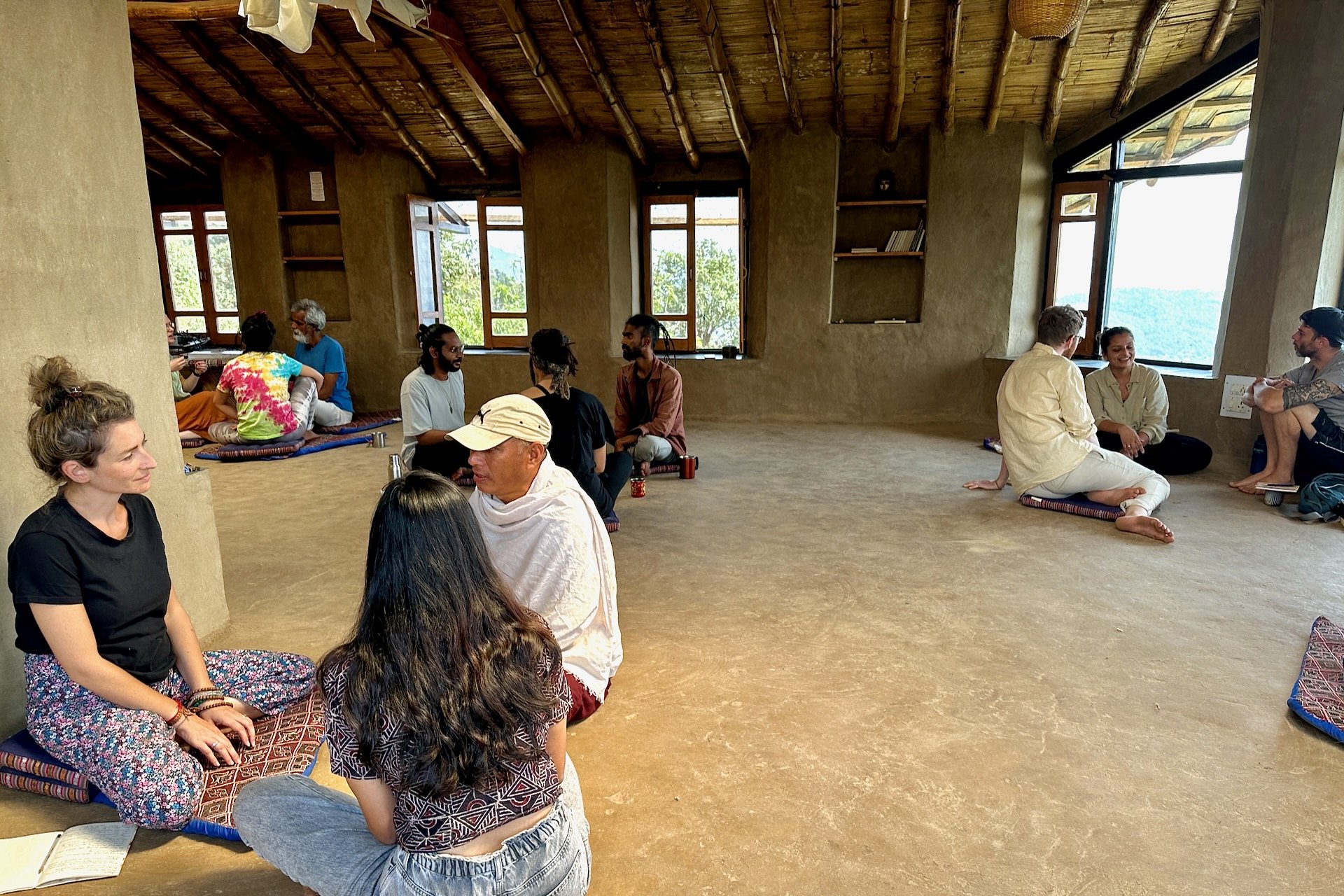
A TALE OF TWO CAMPUSES:
THE EARTHVILLE + DHARMALAYA PARTNERSHIP
Earthville Institute (in Colorado) and Dharmalaya Institute (in the Indian Himalayas) are sister schools, both of which are part of the Earthville Network, a global community of local initiatives to create a more compassionate and sustainable world.
This partnership brings to Building a Better World a global, multicultural perspective, a breadth and depth of experience with projects that make a positive impact, and the potential for some participants based at one campus to participate in at least one module at the other campus (whether that’s an online course or an in-person program). We encourage our participants to make good use of this opportunity to explore global issues with intimate understanding of their local and regional expressions.
Recognizing that there are significant costs (in terms of carbon cost as well as financial expense) for international travel, we will provide opportunities for meaningful learning and human connection online. And for those who are interested and able to travel internationally, both campuses welcome participants from the other.
This opens the possibility that, even if you are primarily based at Earthville Institute for the program, you may be able to participate in at least one module at Dharmalaya Institute (or vice-versa). And in any case, there are opportunities for the participants at both campuses to connect (especially during the June through September period, when in-person activity at Earthville Institute is at its peak).
Dharmalaya Institute (Himachal Pradesh, India)
Earthville Institute (Colorado, USA)
VIDEO INTRODUCTION
STRUCTURE, SCHEDULE & COSTS
Modular course structure
What we mean by “modules” and “modular course structure”:
A module is a single program (such as a workshop, a retreat, a residential course, a practicum period, and so on) that anyone can apply to join on a one-off basis (whether or not they’re participating in the Building a Better World program).
A modular course is a longer-term educational program that is made up of multiple modules.
Here’s a quick overview of the types of modules in the series:
Workshops: Intensive, hands-on plunges into a particular topic (e.g. natural building, organic gardening, design, etc.), usually combining theory and practice, and always with a contemplative flavor.
Practicums: Most of our workshops are followed by a practicum period that supports the workshop participants to deepen their understanding and refine their new skills by working alongside our teams. There’s no substitute for extended hands-on experience, so putting in the hours doing the work is an indispensable part of learning.
Retreats: Sometimes we need to take a step back from all the intense activity in the outer world and give some loving attention to our inner world, cultivating a serene presence and deepening our contemplative practices (such as meditation and yoga).
Special projects: Periodically, there will be opportunities for participants to take on special projects as a deeper dive into a particular area of interest. These might be individual or group projects, including research, design, craft, building, writing, etc.
The breathing rhythm that is created by alternating between these different types of modules, such as a more theory-focused intensive followed by a more action-focused practicum and a reflective retreat, is a proven system designed to support deeper integration of learning and to build knowledge and skill in a stepwise fashion with time to integrate each step.
Evaluation & transition
Learning = experience + reflection. Learning from the experiences of this program will come not only during the experiences themselves but also in reflecting on them afterward with a bit more perspective. And some of the best learning will come from evaluation processes in which each participant will take time to reflect on their experiences and do some journaling to connect the dots and identify the most valuable and impactful insights and inspirations. Participants will then share their self-evaluations with the program facilitators and receive the benefit of their observations as well.
The final weeks of our long-term programs are some of the most important, as they will provide opportunities for reviewing the entire experience, mining reflections and drawing connections, and a comprehensive experience evaluation process where much of the learning comes into focus. For departing participants, we will also give some attention to making the most of the transition from this experience to whatever may come next, and also fulfill the function of passing the torch to the newer participants, a function that is critical to a healthy community or society.
Levels of participation
Recognizing the diversity of needs, interest levels, budgets, and time considerations, we are offering five different levels of participation, ranging from a single one-off workshop or module to full-time residential participation for a year or more. (Note that year-round participation and levels 3, 4, and 5 below are currently possible only for those who are able to spend at least some time at Dharmalaya Institute in India, due to the seasonal nature of Earthville Institute’s campus closures during its startup stage.)
One step at a time: Participate in one individual program module (such as a single workshop or retreat, etc.), and then decide later whether you might like to participate in one or more additional modules in the BBW series.
The come-and-go plan: If you already know in advance that you’d like to participate in the program long-term but you also have other commitments that prevent you from staying at Earthville Institute or Dharmalaya Institute for a whole year continuously, you can follow the “come-and-go plan,” registering for whichever program modules you’re able to attend and taking breaks in between to tend to other parts of your life. In this way, it would be possible to complete a full year’s worth of program modules over a longer span of time. This would also provide the option to mix-and-match the modules that are most relevant to your interests.
One-year full-time (or longer): Enrollment for a full one-year cycle is especially recommended for those who wish to put these concepts and methods into practice (particularly as a vocation or profession). Each module in the series ends with review and evaluation and an individual meeting with faculty. Participants in the full-time one-year course receive extra time and attention.
One year plus management team experience: Those who have successfully completed the one-year minimum in the BBW program (whether that is one year continuously or stretched out over a longer time on the “come-and-go plan”), and who are either already at Dharmalaya Institute in India or are able to travel to stay there, will qualify for the precious opportunity to stay for another six months (or longer) at Dharmalaya Institute with your room and board provided by the Institute at no cost, to gain experience serving on Dharmalaya Institute’s Management Team, putting your learning into practice in the real-world environment of Dharmalaya Institute’s programs, and to be a part of shaping and delivering future programs at the Institute. For anyone who is interested in building a project or career that involves making a positive impact in the world, this is an extraordinary opportunity to work closely with the founders and directors of Dharmalaya Institute and Earthville Institute.
Internship: If you already know that you’re inspired to participate in the program for at least one year or more and you want to launch a project or career in this kind of work, you may wish to apply join the program as an intern in Dharmalaya Institute’s Internship in Sustainable Project Development (ISPD). Participating as an intern is like the one-year options 3 and 4 above, with the additional benefit of more individualized professional training and experience (including team management, project management, leadership and communication skills, material procurement, etc.) starting right from the first months. This one-year course completely satisfies Dharmalaya Institute’s requirements for the Internship in Sustainable Project Development (ISPD).
Schedules
Periodic start dates and flexible end dates
Because this is an ongoing modular series, it is possible to join at the start of any of the program modules (i.e. workshops, courses, retreats, etc.) that are part of the Building a Better World series (which will be mentioned on the program information pages for all qualifying programs). After completing your first program in the BBW series, you would have the option either to stay on at Earthville Institute (or Dharmalaya Institute) and continue with your experiential learning , or leave for a time and return whenever you are able to continue.
Note that Dharmalaya Institute’s schedule is year-round, while Earthville Institute’s schedule is seasonal (typically June through September).
Daily schedule: What will the days be like?
The day-to-day schedule will vary depending on program and location. The schedule for a typical day of our residential programs would include a morning contemplative practice session (yoga/meditation), community meals, morning and afternoon work/activity sessions, and sometimes an evening activity (depending on program and situation). See individual program and event pages for details.
Costs
Both Earthville Institute and Dharmalaya Institute are nonprofit educational organizations dedicated to making their programs accessible to all by keeping costs as low as possible. Because this is a modular program, the fees depend on which modules one chooses to participate in. Please see the individual program information pages in Earthville Institute’s events schedule and Dharmalaya Institute’s events schedule for details on the costs of each individual program module within the series.
Note: We can help you fundraise to cover the costs of your participation in the program. For details, see the bottom of this page (just under the “Apply” button).
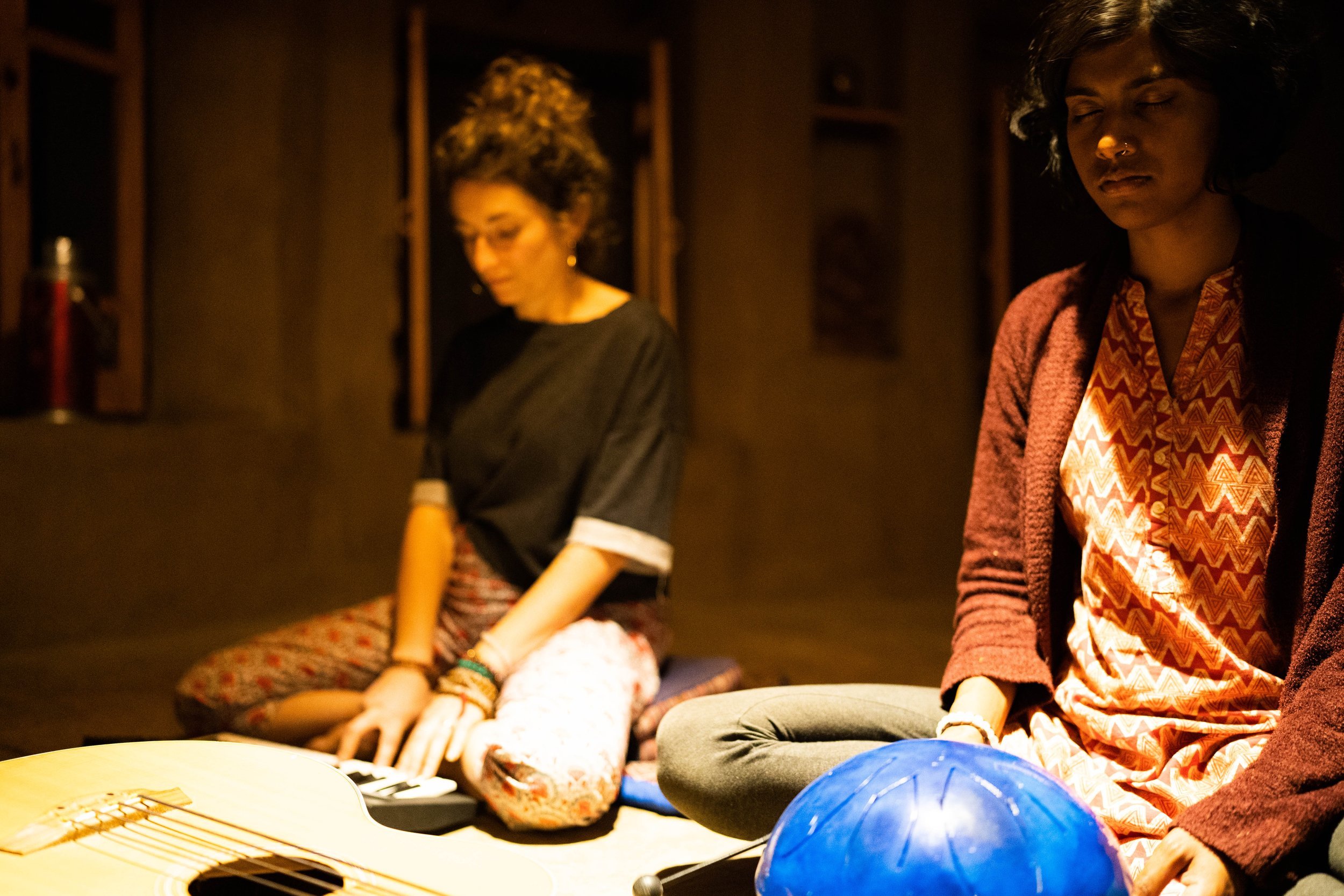
FACULTY
Visiting faculty and special guests to be announced
Note that for this programs, our senior faculty members will be leading their respective aspects of the course through a combination of in-person and online sessions (see each program’s event pages for details). For programs at Dharmalaya Institute during the periods when senior faculty members are not physically present on campus, program sessions and activities will be facilitated by Dharmalaya Institute’s senior community members, with additional training provided by our local village staff. Throughout the course there will be regular engagement with the senior faculty, whether in-person or online.
APPLICATION PROCESS
Space in this program is limited. Participation is by application and is subject to acceptance.
STEP 1 — APPLY: Submit the application form. (We recommend using a desktop/tablet browser, as some people find doing the applications on a phone screen to be tricky.)
STEP 2 — CONNECT: The next step is for us to schedule a short video call to give you a chance to ask whatever questions you may have, and to help us better understand your interests and confirm if the program is a match.
STEP 3 — JOIN: After the call, we’ll send you more detailed information about the program and how to prepare for your first module in the program.
If you have any questions after reading all the material here on our website, feel free to contact us and we’ll be happy to help.
We look forward to connecting with you!
We can help you fundraise to cover the costs of your own participation!
Earthville Institute is a 501(c)(3) nonprofit educational organization, so donors can make tax-deductible contributions toward our scholarship fund. If you have financial hardship that prevents you from being able to afford the tuition fees for a program that you’d like to attend, we can empower you with tools and a webpage where you can run your won crowdfunding campaign to raise funds to support your own scholarship. Contact us for details.
PARTICIPATE: PROGRAMS | EVENTS | INTERNSHIPS | VOLUNTEERING | DONATE



